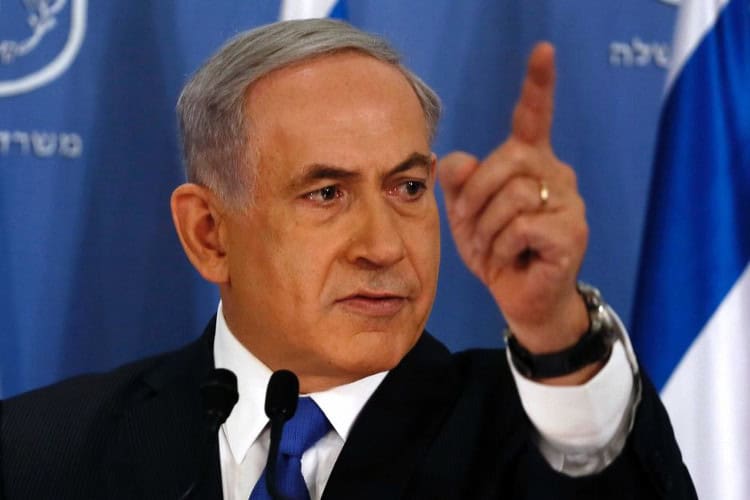Ramallah: The re-election of right-wing Israeli Prime Minister Benjamin Netanyahu and a potentially imminent US peace plan don’t auger well for Palestinians hoping for an independent state.
Netanyahu beat off a centrist challenger to win a record fifth term Tuesday, and will now begin negotiations with religious and rightist parties to form a coalition.
What will that government mean for the prospects of a peace agreement along the two-state solution lines?
What will the government look like?
The new government is likely to be broadly similar to its predecessor, considered the most right-wing in Israel’s history.
It is expected to include parties, including Netanyahu’s Likud, that favour annexation of at least some of the occupied West Bank, where some 400,000 Israelis live in settlements considered illegal alongside some 2.7 million Palestinians.
Before the election, Netanyahu pledged to annex West Bank settlements into Israel in a move that would make a Palestinian state all but impossible if done on a large-scale.
He will now face pressure to follow through.
In blockaded Gaza, where Israel and the strip’s rulers Hamas have fought three bloody wars since 2008, there may be more pressure for Netanyahu to act.
That could be compounded by the possible return of Avigdor Lieberman, a right-wing hawk who resigned as defence minister late last year accusing Netanyahu of being soft on Hamas.
What will it mean for peace negotiations?
Hugh Lovatt, an Israeli-Palestinian affairs fellow at the European Council on Foreign Relations, said all signs were Netanyahu’s re-election would damage any remaining hopes for a two-state solution.
“Netanyahu has worked assiduously to bury the prospects of any meaningful Palestinian statehood,” he told AFP.
“A decision by Israel to formally annex its settlement blocs in the West Bank will cause a severe diplomatic crisis with Europe — even if it is not clear what costs will come with this,” Lovatt said.
“But even if Israel does not go down this path, the process of creeping annexation is already well under way.”
Ahmed Majdalani, a senior Palestinian official, said the “racist” new government expected would make peace nearly impossible.
“This government will bury the peace process and the two-state solution. We can no longer talk about a peace process.”
At the same time, critics would argue the two-state solution has been declining in support among both Israelis and Palestinians for years and there were no peace negotiations throughout the entire four years of the previous government.
Israel has continued to expand settlements and Hamas militants have fired rockets from Gaza, further damaging peace hopes.
But there is a potential wildcard that could force the issue of peace talks onto the agenda again — US President Donald Trump.
Will Trump’s peace plan finally happen?
Since coming to power Trump has proven to be perhaps the most pro-Israel president in history, breaking with decades of international consensus to recognise Jerusalem as the country’s capital and Israel’s control over the Golan Heights.
His administration is now expected to finally publish a long-delayed peace plan.
The contents remain closely guarded, but Palestinians have reason to fear it will be skewed towards Israel.
On Wednesday Trump’s Secretary of State Mike Pompeo refused to reaffirm US support for a two-state solution, and he has also refrained from condemning Netanyahu’s proposed settlement annexation.
Trump hailed Netanyahu’s re-election, saying it would give peace a “better chance.”
How will Israelis and Palestinians react?
Palestinian president Mahmud Abbas has been boycotting the Trump administration since December 2017, when the US leader recognised the disputed city of Jerusalem as Israel’s capital.
Tareq Baconi from the International Crisis Group think tank said that would likely continue unless Trump radically changed course.
US ambassador to Israel David Friedman and Trump’s son-in-law and adviser Jared Kushner have both previously financially supported Israeli settlements.
“There is a clear ideology which is embodied by Friedman — it legitimises settlements, retains Israel’s hegemony over the West Bank and keeps Gaza economically isolated.”
“I don’t see what incentive Palestinians have to engage with the plan. It will be dead on arrival.”
Majdalani said they expected a radically biased proposal.
“We expect annexations of parts of the West Bank, especially the settlements, parts of Area C and to leave the Palestinian communities un-annexed, in an attempt by the US and Israel to force a unilateral solution.”
American officials stress that the plan will be fair and say both sides will have to make compromises.
Netanyahu, too, will face criticism if the plan is seen to give up Israeli claims to any of the West Bank, with some members of his coalition pointing to Jews’ connection to the land from the biblical era.
Bezalel Smotrich, a member of the far-right Union of Right Wing Parties alliance expected to join the Netanyahu government, said Wednesday that Netanyahu “can think about Trump’s plan but if he promotes it he won’t have a right-wing government.”
[source_without_link]AFP[/source_without_link]

